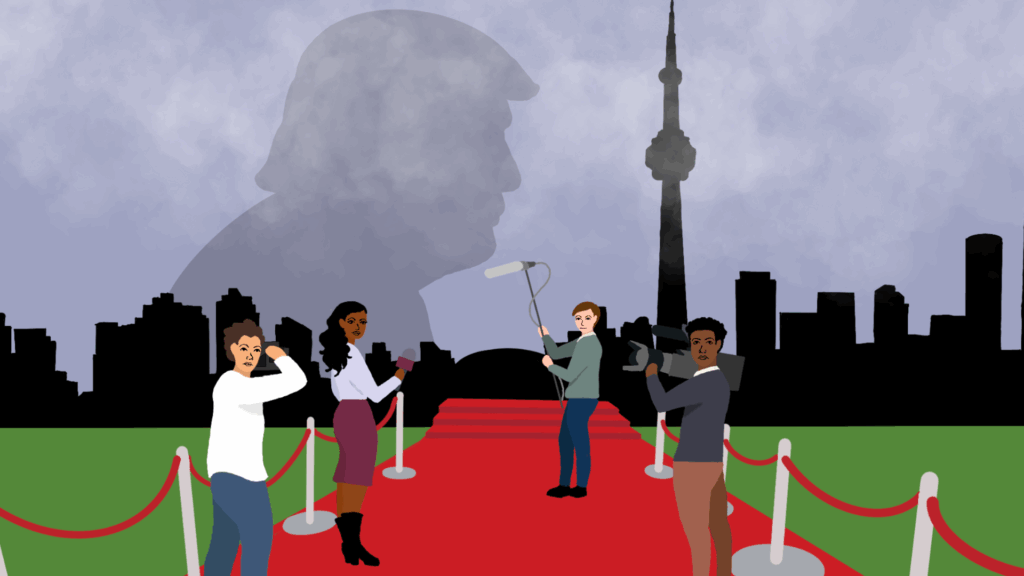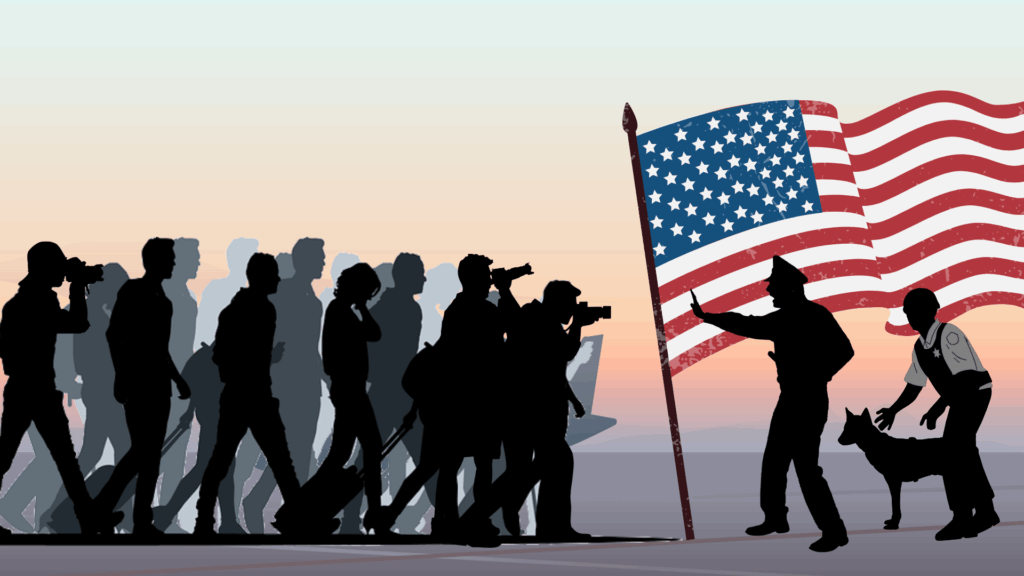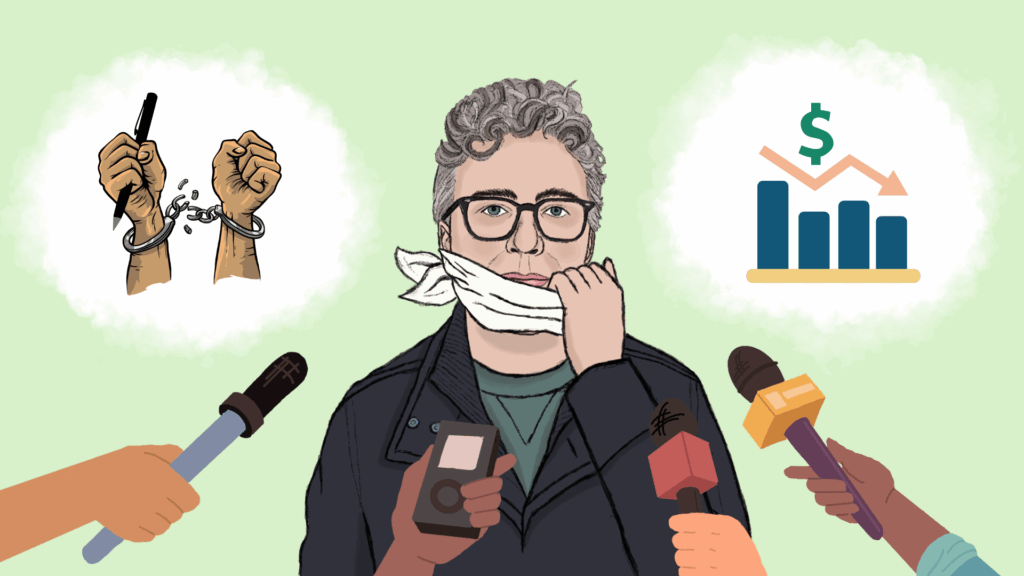As trade-war tensions with the U.S. increase, Canadian culture journalists wonder how their work will be affected

In March, after a month of deliberation by President Donald Trump to impose tariffs on numerous countries, a 25 percent tax was placed on goods entering the United States from Canada and Mexico. Canadians across the country remained uneasy as the days went on, fearing possible job cuts and even higher inflation. As Canada–U.S. border policing increases, officials advise Canadian travellers to limit the information accessible by border agents on their mobile devices, even suggesting they bring a burner phone. “I spend most of my days making jokes about how I better take anything off my phone,” says Adam Nayman. “It’s a joke, but it’s not a joke when you’re making the joke every 10 minutes, right?”
Nayman, a film critic, writer, and lecturer at the University of Toronto’s Cinema Studies Institute, says those in the entertainment industry are just starting to wrap their heads around the current political climate in North America and how it will have a prolonged effect across all forms of journalism. With American institutions suffering structural changes as a result of new anti-DEI policies, Canadian reporters have begun to wonder: How will these changes affect us?
What Does This Mean for Arts Journalism?

The Trump administration was ordered by a federal judge to allow the Associated Press back into the White House. The news organization had been excluded from certain events since February for using the term Gulf of Mexico rather than adopting the new administration’s term, Gulf of America. “This is much more general stuff than arts and culture journalism,” Nayman says. “Media is struggling to keep up with what this government is doing or saying they’re going to do. We’re trying to register these effects in real time. It’s disorienting to look at the news for even five consecutive minutes.”
As the Toronto International Film Festival (TIFF) approaches, it will be one of the first indicators of whether these political tensions have impacted festivals, major screenings, and the relationships between Canadian and American journalists, actors, and producers.
Nayman says there probably won’t be a big shift in attitudes, but acknowledges that things could change between now and September. “More interestingly,” Nayman adds, “what would happen to the New York Film Festival? Would the Venice Film Festival be less happy to invite American journalists?”
Wait, We Can Go to Jail for This?

Other journalists in the industry are also thinking about the effects more broadly. Will Sloan, Canadian writer and cohost of two podcasts, The Important Cinema Club and Michael & Us, says U.S. tariffs have not yet affected the majority of his income, which comes from podcasting. However, having recently written a book, Sloan says he’s wary about whether he should have a book launch in the United States. “I am acutely aware that, until the courts determine otherwise, a Canadian citizen like myself does not have freedom of speech within the borders of the United States,” he says. “I’m not going to flatter myself into thinking that U.S. Secretary of State Marco Rubio cares what I think about anything, but people have been harassed and detained for very little.”
Sloan says that while the editors and colleagues he’s currently working with are all good and like-minded people, he’s nervous about how current politics might affect his career and the state of journalism as a whole in the future. “Having lived through the last recession,” he says, “I’m anxious about what the current one will do to whatever is left of the media.”
Nayman and Sloan point to the hesitation journalists might feel when considering whether to cross the border for personal and professional reasons. “Everyone I know feels at least a little bit of trepidation about crossing the border,” says Sloan. “If there’s even a 0.5 percent chance of ending up in a detention facility because of something you’ve tweeted, who wants to take the risk?”
As both journalists put it, the effects of current politics might not be immediate for industries such as arts, entertainment, and film, but there will remain a sense of uncertainty as to what the future holds.
Nayman advises journalists looking to get a foothold in the industry to do so if they want, while remembering that it’s often seen as “a somewhat precarious lifestyle or job to cover the arts.” Sloan encourages writers and creators to “consider very seriously who you are working for. Do you think your employer would do anything to protect you if you were at risk of expressing your right to free speech?”
About the author
Rougine is completing her final year of TMU’s Bachelor of Journalism program and pursuing a minor in Philosophy. She has written for BeatRoute Magazine and is interested in music, culture, and daily happenings. Outside of reporting, Rougine can be found watching movies, spending time with family and her dog, and always looking for her next travel destination.

